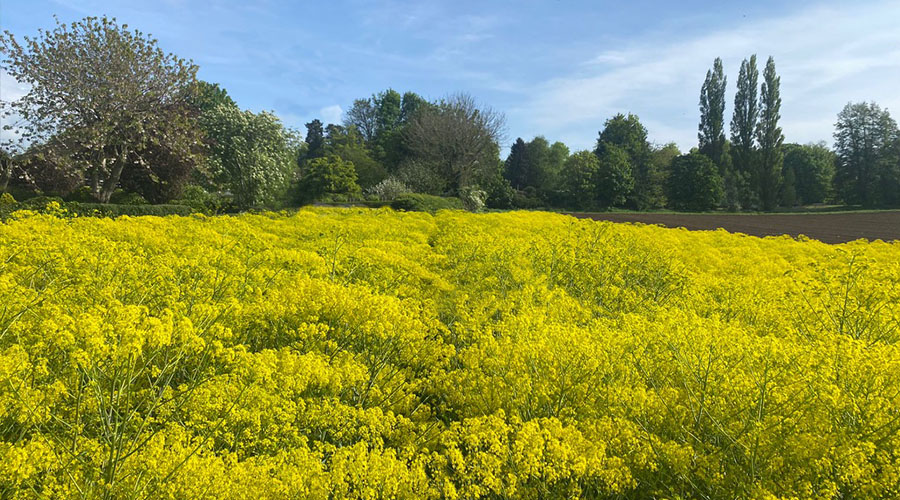Homegrown Colour Ltd. is a new botanical textile dye producer currently pioneering the commercial upscale of British Indigo from organic Woad. The collaboration between natural dyer Justine Aldersey-Williams and organic farm inspector Mark Palmer, emerged in response to the increasing need for renewable textile dyes in the U.K.
The growing international Fibershed movement which advocates for ‘local fibre, local dye and local labour’ has, since 2010, been highlighting both the harmful impacts of fossil-fuel derived dyes and the huge potential for both textile fibres and dyes to help restore soil health and biodiversity when grown agroecologically. The U.K. currently relies upon imported, synthetic pigments and dyes, despite having a long history of natural dye usage for thousands of years prior to the Industrial Revolution. However, the United Nations’ IPCC report emphasises the urgency with which humanity needs to divest from fossil fuel usage. Transitioning from non-renewable to renewable materials is simple future proofing for all commercial dyers which means both reverting to botanical sources and growing them locally in a way that restores the planet.
Justine founded the Northern England Fibreshed in March 2020 and was joined by Mark in 2023. The demand for commercial natural dyes, while still emergent, has been increased in part by her regenerative clothing project in collaboration with fashion designer Patrick Grant who is a judge on the BBC’s Great British Sewing Bee. With a team of volunteers and cultural development programme SuperSlow Way, they planned to bring #HomegrownHomespun indigo linen jeans to market in time for the British Textile Biennial in October 2023.
While the commercial upscale with Patrick’s social enterprise Community Clothing has to date not been possible, Justine made British fashion history by producing the U.K.’s first pair of homegrown jeans in at least 120 years, and the awareness raised by press coverage has helped incentivise the reintroduction of textile crops within British agriculture.
Woad pigment production by Homegrown Colour is still in its test phase while the team establish the most efficient growing and processing systems, but their first harvest of ‘beta’ British Indigo will be launched at Groundswell in July 2024. They are excited to be continuing work with a synthetic dye factory who are keen to trial natural dyes.



1 COMMENT
A WordPress Commenter
2 years agoHi, this is a comment.
To get started with moderating, editing, and deleting comments, please visit the Comments screen in the dashboard.
Commenter avatars come from Gravatar.